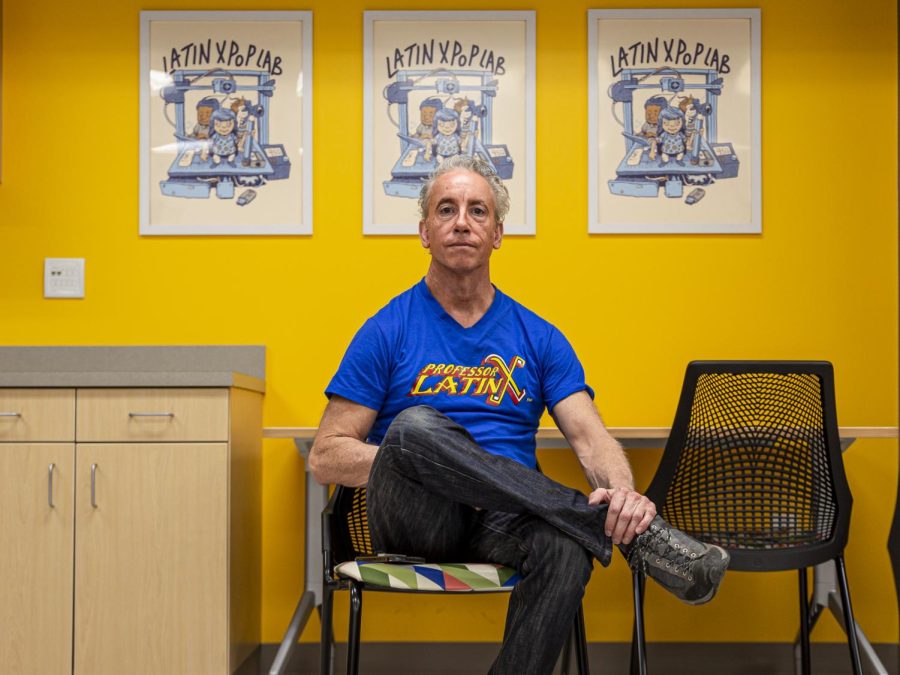English professor elected to Academy of American Poets Board of Directors
November 29, 2022
UT English professor Frederick Luis Aldama, who said he wants to cultivate an interest in poetry as a tool for systemic and social change, will join the Board of Directors of the Academy of American Poets.
“We need to really create and cultivate poetry … as not only an aesthetic form, but as something that … asks us to take pause and to reflect not just on ourselves, but also on the diversity of who we are,” Aldama said.
The Academy of American Poets advocates for poets and poetry accessibility, by supporting poets in various stages of their careers, according to a College of Liberal Arts press release.
Aldama said he wants to fight the idea that poetry is only formal writing in standard English and expand the idea of what constitutes poetry.
“We can find and make poetry in and across comic books, in animation and film, just as those storytelling spaces can inform the way we make poetry on the page and the way we also speak poetry on the stage to audiences,” Aldama said.
These ideas penetrate Aldama’s classes, where he encourages the examination of current social justice issues from a unique critical standpoint, said English sophomore Khushi Puri, who is one of Aldama’s students. In Aldama’s Introduction to Comics Studies class, Puri said Aldama fosters creativity within his classroom and connects modern comics to social movements, like Black Lives Matter.
“He really encouraged everybody,” Puri said. “And I think that is so important, especially because we’re all new writers, and we’re all still learning and he created that space for us. That was really important to me.”
In addition to his appointment to the academy, Aldama recently opened the University’s Latinx Pop Lab, a space for students and guest speakers to share experiences and explore various creative forms, like poetry, as a multimodal, multimedial art form. Samantha Ceballos, a graduate research assistant at the lab, said the Latinx Pop Lab hopes to provide a safe space for BIPOC students.
“It means a lot to be able to work in this space and to know that I can marry my love of poetry (and I) can open so many new aspects of poetry that maybe some people don’t think about,” Ceballos said.
Like he has done with the pop lab, Aldama said he hopes to create spaces to nurture poetry for future generations.
“We have the platform to be able to make a difference and I think it’s the new generations that are going to have the energy and vitality and the wherewithal to make that difference,” Aldama said.












